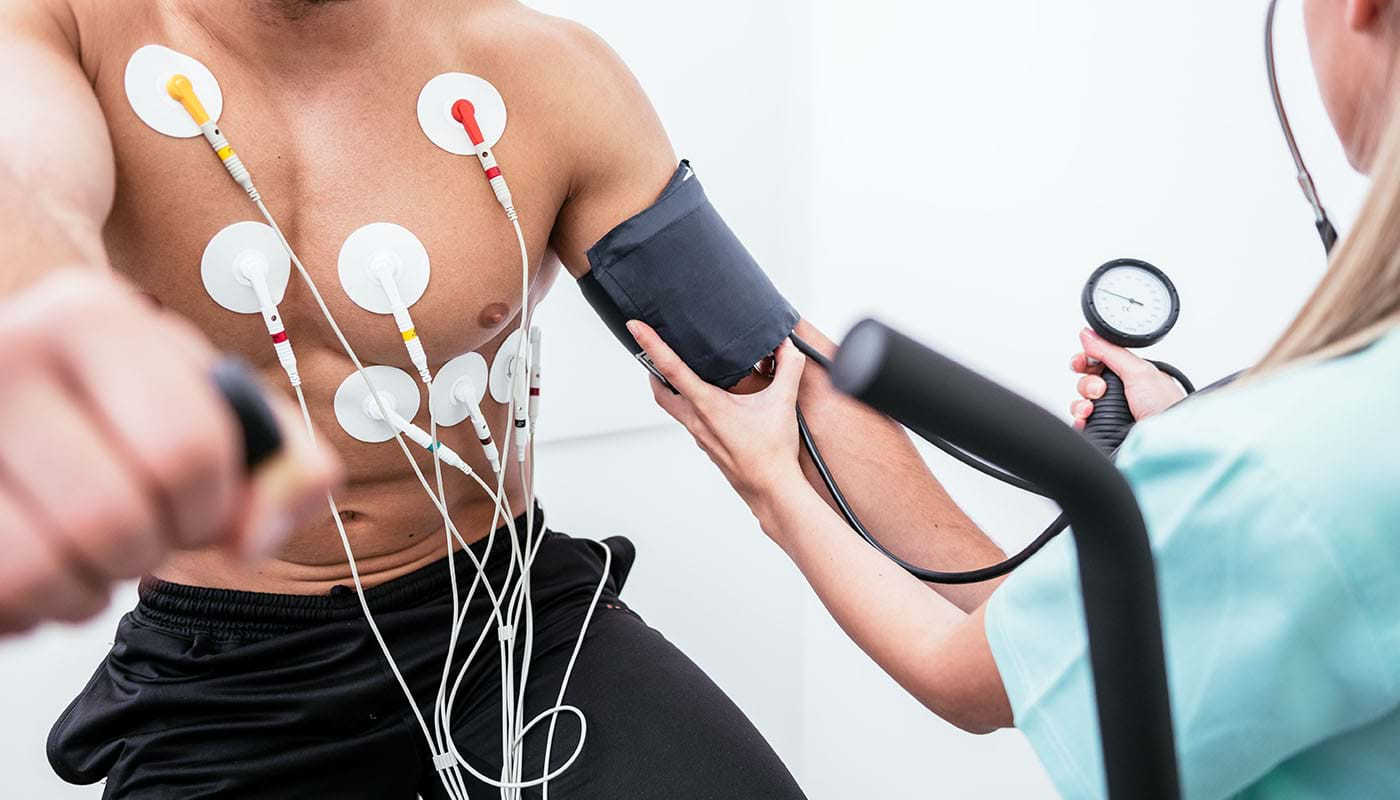
Exercise Stress Testing
Have you ever wondered how your heart truly performs when pushed to its limits? With exercise stress testing, Dr Moedi takes you on a journey into the heart's dynamics during physical exertion.
This test offers more than just data — it's a pathway to understanding one of your body's most vital organs.
What is exercise stress testing?
Exercise stress testing, commonly known as a treadmill or exercise ECG test, is a diagnostic tool Dr Moedi uses to measure your heart's response to the stress of physical activity. In simpler terms, it's like taking your car for a test drive and monitoring its engine's performance, but in this case, the heart is the engine.
What is the purpose of an exercise stress test?
Cardiologists, like Dr Moedi, routinely use exercise stress tests to:
- Diagnose coronary artery disease
- Determine safe levels of exercise for those starting a new exercise regimen or cardiac rehabilitation program
- Identify the cause of unexplained chest pain or discomfort
- Check the heart's response to treatment or procedures.
- Predict the risk of dangerous heart-related conditions like a heart attack.
What happens during an exercise stress test?
The procedure might sound complicated, but it's quite straightforward. Dr Moedi will walk you through all the steps during your appointment, but in order to prepare, you can take note of the following:
- First, you'll be prepped for the test. This involves attaching electrodes (small sticky patches) to your chest, which are connected to an electrocardiogram (ECG) machine. This machine will track and display your heart's electrical activity during the test.
- Before you start exercising, Dr Moedi will take baseline readings of your heart rate, blood pressure, and ECG. This gives him a starting point to compare with measurements taken during physical activity.
- You'll begin exercising on a treadmill or stationary bike. Initially, the pace will be slow and easy, but gradually, it will get faster and more challenging (think of it as increasing the incline or resistance). Your job is to try and keep up for as long as you can or until Dr Moedi advises you to stop.
- The ECG will continuously track your heart's electrical activity throughout the test. Dr Moedi will also regularly check your blood pressure and discuss any symptoms.
- The exercise phase of the test usually lasts about 6 to 12 minutes. However, if you experience any discomfort, such as dizziness, shortness of breath, or chest pain, please inform Dr Moedi immediately. He might stop the test based on these symptoms or after gathering enough data.
- After the exercise is stopped, you'll be monitored for a short while as your heart rate and blood pressure return to their resting levels. Once stable, the electrodes will be removed, and you'll be given any necessary instructions or results.
How do I know if I need an exercise stress test?
Exercise stress tests are recommended for those who:
- Have symptoms of coronary artery disease, like chest pain or shortness of breath
- Need to start a new exercise regimen and have a history of heart disease or certain risk factors
- Have an irregular heartbeat
- Have successfully undergone procedures like angioplasty or bypass surgery, and their doctors want to determine the heart's current condition
- Have other heart-related symptoms or conditions and need a deeper analysis
Exercise stress testing is a powerful tool that offers vital insights into heart health. Dr Moedi is skilled at conducting and interpreting these tests, ensuring patients receive the care and guidance they need to maintain optimal heart health.
Send us a message
Fill in the form below and we will get back to you as soon as we can.